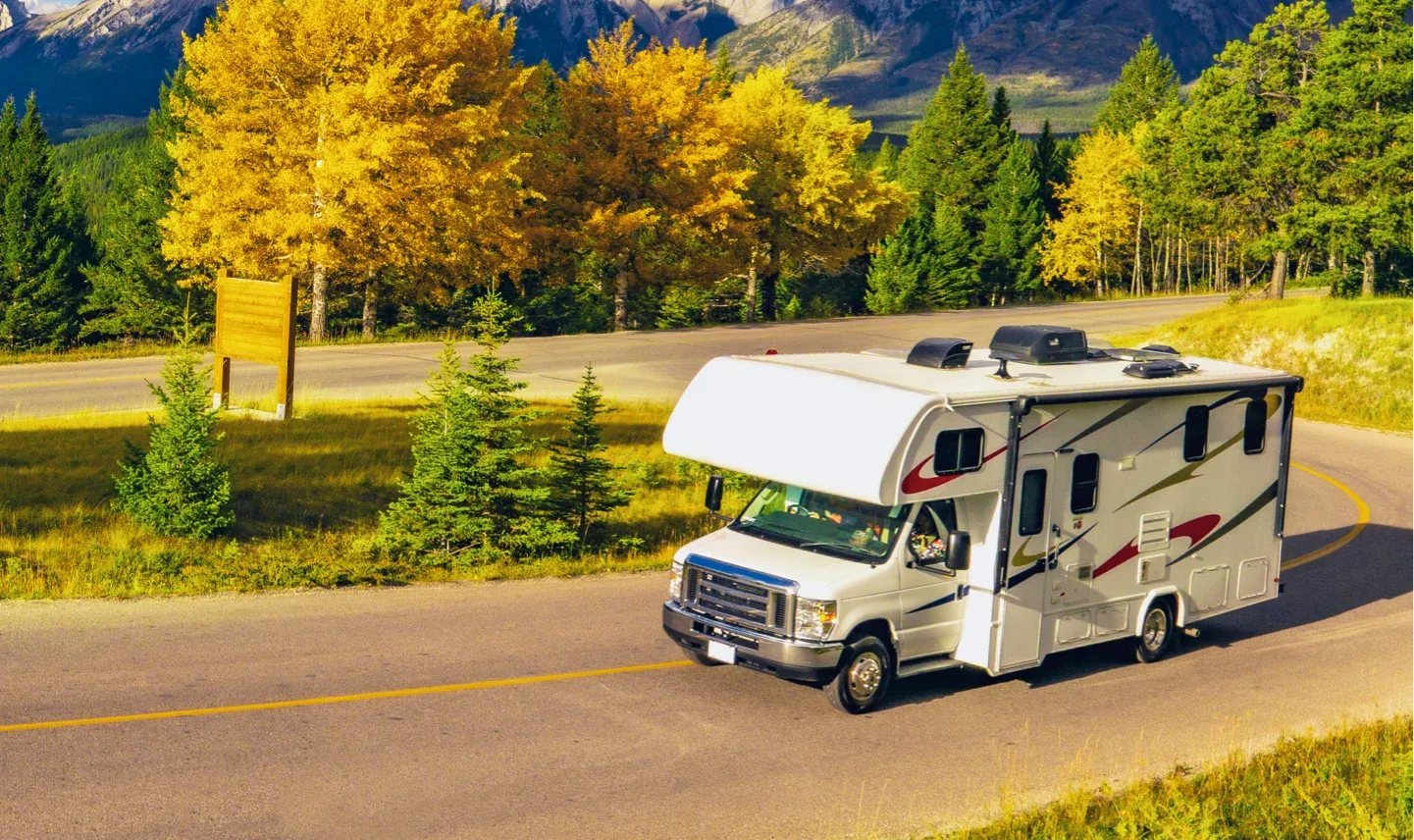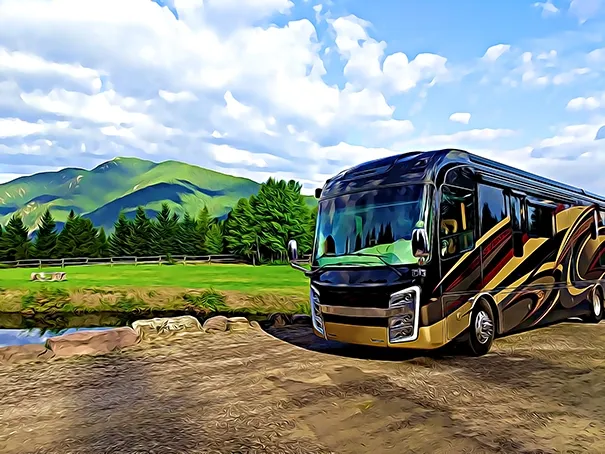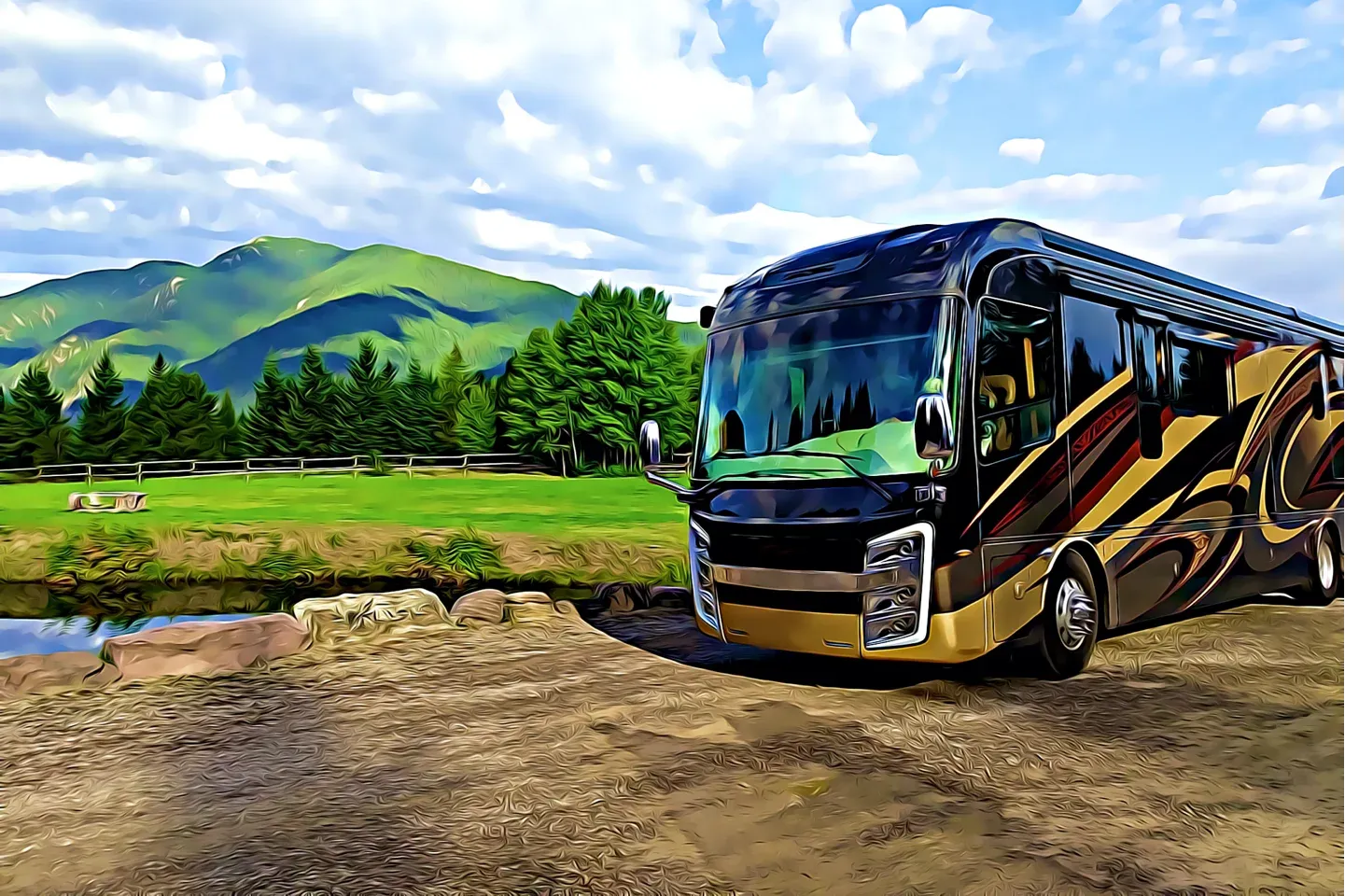

RV Storage
When your cross-country adventure ends, we are here to help store your RV. Free up your driveway and utilize one of our secure parking spaces.
Find StorageConvenient and Secure RV Storage Locations Near You
What Size Storage Unit Do I Need for My RV?
Not all Recreational vehicles are the same size, but we have a parking space for you. Here is a handy guideline to determine your size requirements. We recommend measuring the length of your RV before selecting a parking space.
Class A Motorhomes
These are considered the tallest, these RVs are as large as 40 feet long.
Class B Motorhomes
Also known as camper vans, these are considered the smallest sized motorhome with a length between 17 and 19 feet.
Class C Motorhomes
A compromise between Class A and Class B, these typically range in length between 20 and 28 feet long.
Small Trailers
Many of these trailers are between 13 and 20 feet making them perfect for 20′ long parking spots.
Mid-Sized Trailers
These are trailers under 30 feet in length making them perfect for 30′ long parking spaces.
Fifth Wheel Trailers
Combining style and durability. Many of our locations have spaces at large as 40 feet.
Pop Up Campers
Great for the outdoor enthusiast and typically under 25 feet, these are some of the easiest trailers to accommodate.
Toy Hauler Trailers
Part mobile garage, part living space these can vary in size. You may need anywhere from a 20′ to 40′ parking space.
STORAGE FEATURES
Peace of Mind For Your Investment
TESTIMONIALS
What our Customers are Saying

The convenience of signing up was a big plus. After trying to find the unit, I placed a call to customer service and they were quickly able to help me locate the location of my unit in the building. I appreciate their friendliness and speed of service. Thank you very much.
Henry Daniels
I needed a place to store my vehicle for the winter. The gentleman i dealt with was polite, efficient, and looked out for my best interest by finding me a different unit to store in that was nicer to use and also found a discount to use.
Tom L.
Wonderful customer service from Joseph at the call center to Jennifer at the property location. I would recommend to others.
Diane A.
Nice place to store your RVs or vehicles.
Lauren DaySTORAGE TIPS
Preparing your RV for Storage
Your RV needs special care when putting it into storage. Use this checklist to make sure it is ready to go for your next road trip.
Drain the Water System: Especially helpful if you plan to store your RV over the winter. The last thing you want is for your system to freeze.
Clean and Prep the Exterior: Make sure to give your RV a thorough cleaning. Be sure to inspect the roof, windows, doors, and reseal or re-caulk any cracks or holes.
Tire Prep: Inflate tires properly and consider covering them to protect them from harmful ultraviolet rays.
Ventilation is Key: Keeping moisture out of your RV is a big concern. Many people recommend keeping the rooftop vents open, cabinet and refrigerator doors open.
Clear Out the Refrigerator: Double and triple check to make sure you remove all food from the RV. You do not want to come back to your RV with unpleasant odors and mold.
Protect from Bugs & Rodents: Different areas will have different pests but they all can cause headache. Make sure all external openings are blocked off or screened. Place traps around plumbing vents, fridge panels, and near vents.
Lubricate: Not only should you lubricate all locks with graphite spray, but you should use WD-40 on the hinges moving parts.
Turn Off the Gas: Make sure all gas appliances are off as well as the gas supply valve.
Disconnect the Battery: Batteries will lose their charge when kept plugged in and in storage. Make sure you store it in a cool, dry place. Storing it in colder temperatures will slow down the charge loss from storage. You may need to check the charge every 6 weeks with a voltmeter or multi-meter and charge it when necessary.
Add a Fuel Stabilizer: Fuel has a shelf life of about 3 to 4 months so make sure you add a fuel stabilizer to make it last longer.
Update Auto Insurance: When it comes to auto insurance be sure that your coverage is updated to include Storage Rentals of America as the location your vehicle is being stored at.
What Documentation is Required to Store a Vehicle?
You will need to bring in three documents when you come in and rent with us. A government issued ID like a driver’s license or passport, vehicle registration, and proof of insurance. Check with your insurance provider to see if your policy covers storing your car in long term storage and bring in a copy.


RV Storage Made Easy
Reserve your parking space online or over the phone. Have questions? Our storage experts are here to help. Give us a call at 1 (800) 457-5678.
